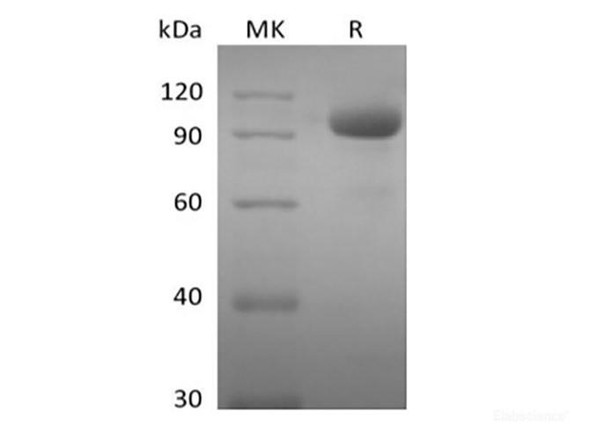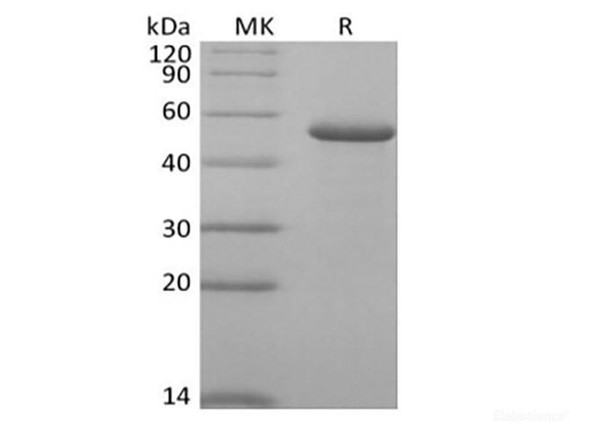| Sequence: | Glu31-Thr542 |
| Accession: | P29322 |
| Storage: | Generally, lyophilized proteins are stable for up to 12 months when stored at -20 to -80°C. Reconstituted protein solution can be stored at 4-8°C for 2-7 days. Aliquots of reconstituted samples are stable at < -20°C for 3 months. |
| Shipping: | This product is provided as lyophilized powder which is shipped with ice packs. |
| Formulation: | Lyophilized from a 0.2 μm filtered solution of 20mM PB, 150mM NaCl, pH 7.4. Normally 5 % - 8 % trehalose, mannitol and 0.01% Tween80 are added as protectants before lyophilization. Please refer to the specific buffer information in the printed man |
| Reconstitution: | Please refer to the printed manual for detailed information. |
| Background: | EphA8, also known as Hek3 and Eek, is a 120 kDa glycosylated member of the Eph family of transmembrane receptor tyrosine kinases. The A and B classes of Eph proteins are distinguished by Ephrin ligand binding preference but have a common structural organization. Eph-Ephrin interactions are widely involved in the regulation of cell migration, tissue morphogenesis, and cancer progression. Receptor tyrosine kinase which binds promiscuously GPI-anchored ephrin-A family ligands residing on adjacent cells, leading to contact-dependent bidirectional signaling into neighboring cells. The GPI-anchored ephrin-A EFNA2, EFNA3, and EFNA5 are able to activate EPHA8 through phosphorylation. With EFNA5 may regulate integrin-mediated cell adhesion and migration on fibronectin substrate but also neurite outgrowth. During development of the nervous system plays also a role in axon guidance. Downstream effectors of the EPHA8 signaling pathway include FYN which promotes cell adhesion upon activation by EPHA8 and the MAP kinases in the stimulation of neurite outgrowth. |






